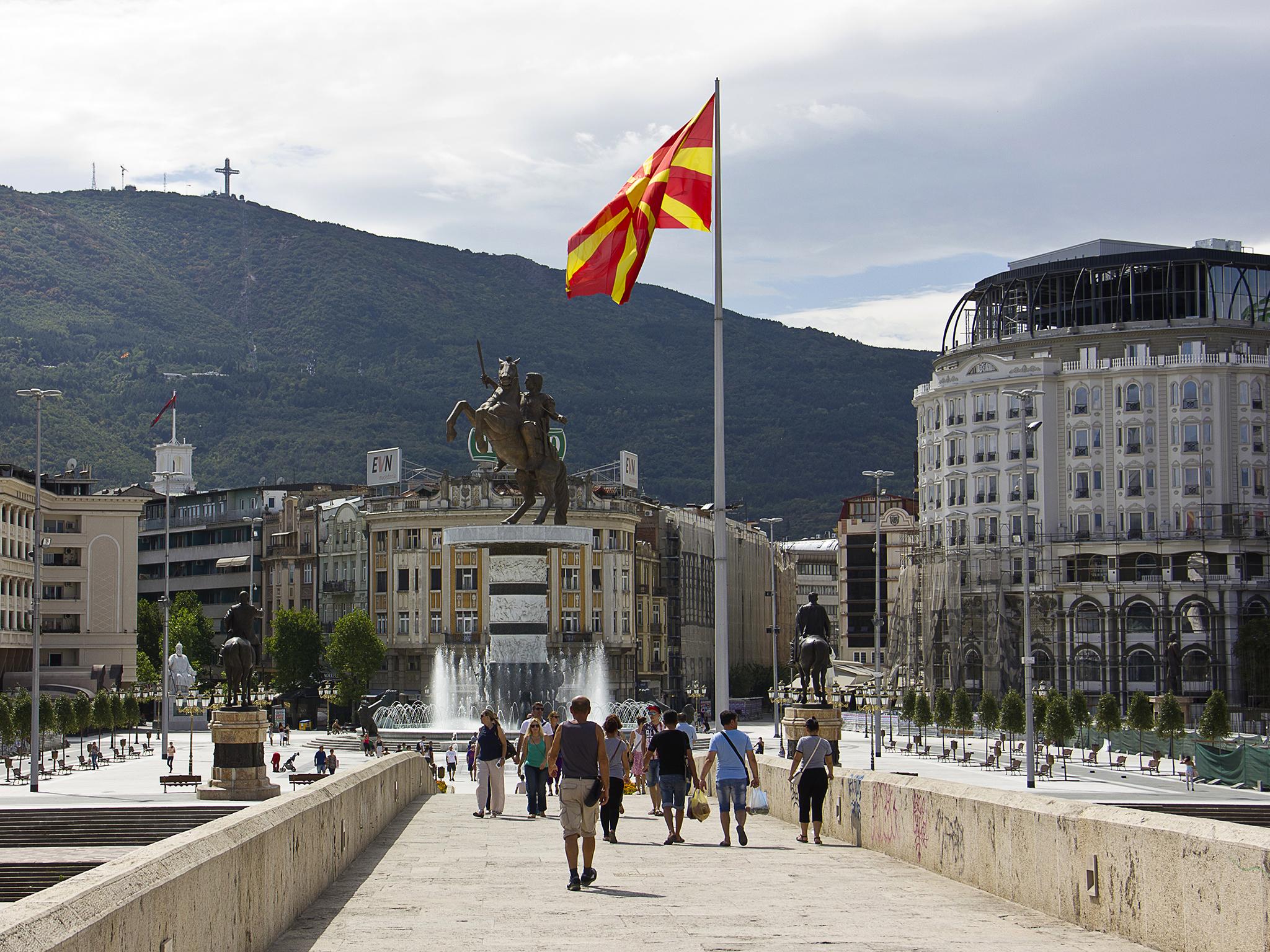EU enlargement plans stall after opposition from Emmanuel Macron
'Emotional' 2am meeting of EU leaders fails to open accession talks with Albania and North Macedonia
EU enlargement plans were left stalled on Friday morning after Emmanuel Macron led opposition to opening accession talks with two new potential member states.
North Macedonia and Albania want to start negotiations with the bloc after having been candidate countries since 2005 and 2014 respectively.
The European Commission recommended in May this year that talks should begin with the two Western Balkan countries, but despite the "overwhelming majority" of member states supporting the move, not all are convinced.
A long meeting on Thursday night between the bloc's presidents and prime ministers, which diplomats described as "emotional", ended at 2am with leaders agreeing no statement on the matter.
French president Emmanuel Macron, standing relatively isolated, argued staunchly against opening talks with North Macedonia. He claimed that the EU's enlargement process was in general need of an overhaul. Commission president Jean-Claude Juncker described the move as "historic error", while Council president Donald Tusk agreed it was "a mistake".
EU leaders have long said that if the former Yugoslav republic changed its name from "Macedonia" to end a decades-long dispute with Greece, its application could go ahead.
The name change was politically costly for the country's government, which faced domestic opposition from nationalists. On Friday afternoon its foreign minister accused EU leaders of "not being straightforward with us", but thanked those leaders who backed his country in the room.
There was more widespread opposition on the European Council to opening talks with Albania, which some leaders argue has not made enough progress on reforms, including to the rule of law. Other than France, Denmark and the Netherlands raised concerns.
A compromise plan proposed by the Netherlands' prime minister Mark Rutte to open talks with North Macedonia only failed, with EU leaders refusing to separate the two countries' bids from one another.
"A number of countries were reluctant regarding today's opening of negotiations, and France was part of them," Mr Macron confirmed. He said the EU was struggling to take effective decisions with 28 members, and that "before any effective enlargement we must reform ourselves".
The strongest supporters of admitting the two countries are Poland, Hungary, Czech Republic and Slovakia – the so-called Visegrad Four group. The states launched an unsuccessful diplomatic offensive ahead of the meeting to try and undermine the French veto.
Germany's Angela Merkel was also supportive of opening talks, saying that she "deplored" the decision not to proceed.

"Unfortunately we were not able to reach agreement," she told a press conference on Friday after the meeting. "We were not able to reach unanimity regarding that position. I very much deplore this fact.
She said North Macedonia had "done a lot" to meet conditions set by the bloc, adding: "Albania too has made progress on the vetting process – the appointment of new judges is a far-reaching measure indeed that many countries in the Western Balkans have not yet got around to doing."
The chancellor continued: "I always make the point that we have to be reliable when we make promises, when we set standards we have to be predictable in our responses instead of turning our backs on them and saying 'well, you've done quite well, but we've thought of something new'."
"I've always thought it was in Europe's interest to engage these countries in Europe. When you take a look at the map you get an idea of how important that is. We're talking about countries here that want to become members of the European Union."
Speaking at the close of the summit, Council president Mr Tusk told reporters: "The overwhelming majority wanted to open accession talks with North Macedonia and Albania, however such a decision requires unanimity and there was no unanimity yesterday.
"Let me be very clear – are not to blame for this and the Commission reports are also clear that both these countries did what they were asked to do.mBoth countries have the right to start negotiations as of today: they are ready. Unfortunately a few member states are not ready yet. This is why we did not manage to reach a positive decision. Personally I think it was a mistake but I will not comment on it further.
"Today I would like to send a message to our Macedonian and Albanian friends: please do not give up. I fully understand your frustration because you did your share and we haven't. The EU a complex political entity and it is true that sometimes it takes too long to decide, but I have absolutely no doubt that one day you will become full members of the European Union.
Mr Tusk, who comes from Poland, continued: "You should never give up. I remember the first time I started to dream of a European future for my country. I think I was maybe 30, 35 years old. I had to wait 25 years for this."
Nikola Dimitrov, North Macedonia's foreign minister, said on Friday afternoon after the result of the meeting had become clear: "The least that the European Union owes the region is to be straightforward with us.
"If there is no more consensus on the European future of the Western Balkans, if the promise of Thessaloniki 2003 does not stand, the citizens deserve to know.
"Gratitude to all leaders that fought hard for the EU to open accession talks with us, thus acknowledging and anchoring the historic Prespa Agreement, encouraging domestic reforms and underpinning the European narrative in North Macedonia, a candidate country for 14 years.
"While we wait for a renewed consensus, we must continue to defend true European values at home."
Join our commenting forum
Join thought-provoking conversations, follow other Independent readers and see their replies
Comments
Bookmark popover
Removed from bookmarks